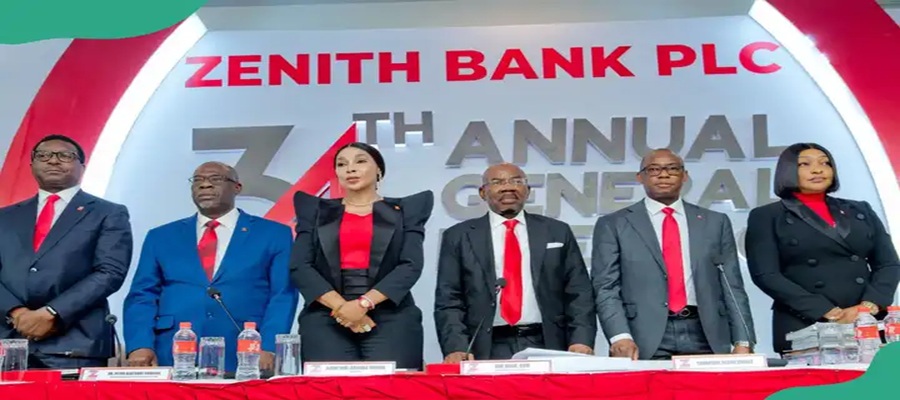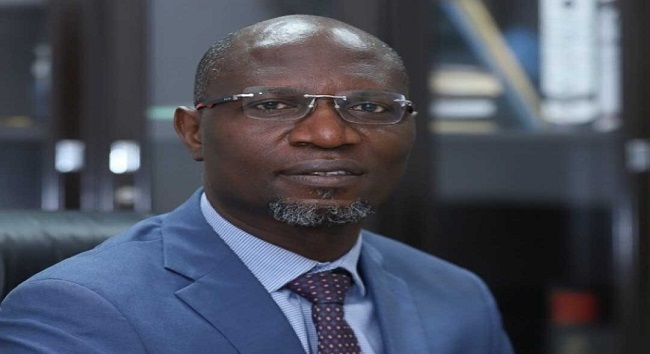E-Financial
Sustaining Financial Inclusion Through Viable Agent Network

By Fasasi Sarafadeen Atanda
As it is today, financial inclusion is stakeholders’ slogan; the awareness has been created Agents are everywhere, but there is a threat and that threat is agent viability. There is no doubt about it all the stakeholders, such the banks, the MNO, MMO have realized that agents play very key role in delivering digital financial services.

If you look at all the strategies of the mobile network operators, mobile money operators and the banks you will find aggregators that show that agents are key in delivering strategy.
If agents are key how then do we make agents viable? My experience has shown that we have high rate of agents’ turnover as a major challenge at the same time provider performance instability as also a major issue. So, we have two major issues that will help to sustain financial inclusion.
Agents’ turnover rate is too high and also the providers or principal, their performance is also not stable. What I mean by that is, on the agents part of turnover, my visit to the field confirmed that the agents that the providers have invested in training, marketing, on boarding in the last three years, greater percentage of them are no longer in business.
That is a waste of resources. They now have new agents that they need to also train and brand again.
I am sure in the next one year if you visit those locations you will find a new sets of agents. In this situation, we are turning over experiences which are not going to lead into sustainability.
What are those things that are responsible for this? First is general skill-set or capacity. What we have is individual provider training agents which is good, if you are agents of Paga, Paga will train you; if you are agents of Opay, Opay will train you.
If you look at the content of the training it is specific to their platform, it is about how to transact on their platform, dispute resolution on their platform, and it is really not about profitability and knowledge of the business.
Actually, viability of agents is determined by making agency banking or agent network a business and not as a service. They don’t train agents on how they will be productive or cost analysis structure.
Training of agents should be handled by a neutral body or training consultants, to be able to deliver cost benefit training on the agents. Even if you are agents of operator A or agents of operator B you will be trained on how to cover your cost as well as how to remain in business.
As at today, SANEF has been playing that role; we want them to do more, they are in the best position to provider general knowledge in training of agents.
Secondly, is what I called platform quality; here we have mobile App platform, and POS Channel platform. This is a major factor responsible for agents’ turnover, by the time you rout transaction through a platform that has not been tested and certified good, you run into trouble and lose your money, this makes agents to be discouraged in the business and before you know it they will close shop.
For instance, if you are transacting with N100,000 capital and you find yourself transacting on a particular provider’s platform of inferior quality because of lack of security. We need to find out if such platforms are secured and feasible. Can you see the money you put in and the money going out? That is transaction history.
Again, what is the time of resolution of dispute and the channel of dispute resolution? Who is supervising this? We need to start certifying any transaction platform that will be used by agents. This has to do with involving stakeholders that have been able to work with all the platforms.
Thirdly is the support system, we have seen a situation where the principal for example, a bank with an agent network. The agent will come to a bank and won’t have a fair treatment in terms of say I want to quickly get cash and go back to location, No. Banks don’t see their agents as agents they want them to go and queue up in line like other customers. This discourages agents as they will spend the whole day in the bank.
This is contrary to what obtains in some Asian and South American countries where financial inclusion is flying, in those environments, the principals are supporting the agents. In Brazil, a bank opens a ‘Till account’ for the agents with a limit, as agents are transacting they don’t need to be looking for money up and down, they are transacting from the ‘Till account’ a sort of an advance. But, here there is no support from the principals.
Multiple taxes: Local government and state government are coming to agent location for one levy or the other. You can’t imagine State government revenue agents are coming, LCDA and LGA agents are coming to a single kiosk. It is worst these days as local government are looking for revenue everywhere, they have now printed a special receipt they called permit for POS.
It is important we borrow a leaf from countries like Uganda and Tanzania where there is a direct statement from central bank of those countries that certain categories of financial inclusion at the level of agents are excluded from these obnoxious taxes. I have closed about three locations in Niger State, five in Kaduna because every day local government harass us for one levy or the other.
On provider performance instability: If you check the statistics, the top five providers MMO, MNO in the past five years, they are not among the top ten today. Why?
A provider that can boast of 70,000 to 100,000 agents today they have crashed to 5,000 some are struggling for 2,000 agents. We need to find out why agents are closing shops.
Among the reasons are: 1. Most of them roll out without pilot even when they are doing pilot it is done within their office and they won’t get agents in the field involved for a proper product design feedback in order to know what the market requires.
I have witnessed a provider that rolled out agency platform believing that they are everywhere, unfortunately when they rolled out we discovered that their platform lack feasibility no agent history. You can’t view your transaction history. You don’t have feasibility into your transaction and they have spent so much money and can’t recall it again, imagine investment that has gone the drained. Today, they are not among the first ten providers because they have lost so much money.
Also in the strategy, I have checked through a lot of providers’ strategy across the channels; the MMO, MNO and the Banks led, I discovered that they don’t engage the practitioners before they design their strategy and their strategies have always be the same.
If you look at commission structure and on boarding processes, they are all the same, so the mistake of one is been repeated in the other. Strategy of agency banking is not cast in stone you have to look at what is obtainable in the market. These are some of the causes of the downfall of most of the providers.
Also the feedback channel, most of them don’t want to listen to feedback. I have seen providers’ WhatApp group platform where they are the only one authorised to give out information, agents cannot comment. This is funny. On their platform, they will add you as their agent but you cannot write anything there. It is only for passing of information to agents. How would they know what is happening in the market, how would they listen to complains? How would they get feedback to improve on their system?
More so, their objective is more of ‘Profit-centric’, in one year you want to recoup your investment, because of this that they give unrealistic targets to their staff, “On board” “On board” before you know it, they on board nonsense for them and as they are on boarding, people are disembodying.
The most successful financial inclusion organisation in Africa is Mpesa in Kenya. In their first year they did not sell any product, they only registered 400 agents compared to providers in Nigeria where in their first year they want to hit 100,000 agents. Providers in Nigeria should be Customer-centric and not Profit-centric.
They should try as much as possible to make sure that people accept their product and sale value to them if you want to retain them. Agents’ retention is nearly zero in Nigeria that is why you see agents on board today and tomorrow dis-on board.
On dispute resolution channels, today most of the MNO if they want to deploy terminals or retrieve PoS from agents, there are no define guard lines, some of them will lock some of their agents wallet so that they don’t have access to the funds again so that he can come to them and they will collect their terminal.
There should be human face to everything, today there are some MNO that throw in debit to agents account without notification, when you inquire they say it is charges of non-performance. Because you are not using their PoS very well they will debit you for the cost of the PoS. MNOs are behaving as if there are no regulation in the system.
Fasasi Sarafadeen Atanda is chief executive officer of partner de Ecosystem, an agent network management company.
E-Financial
Zenith Bank Top Nigerian Bank Pick Ahead of GTCO, AccessCorp

Renaissance Capital Africa (Rencap) has named Zenith Bank Plc its top conviction pick among Nigerian banks, ahead of GTCO and AccessCorp, in a fresh research report highlighting the lender’s robust balance sheet and dividend potential despite sector headwinds.

Zenith Bank
The comprehensive review of the Nigerian banking industry notes that Zenith’s current market valuation lags its improving fundamentals, even as the NGX Banking Index posts strong gains recently.
Rencap upgraded Zenith from HOLD to BUY, lifting its target price by 96 per cent based on a lower risk-free rate from falling government bond yields, refined beta estimates, and expectations of cleaner assets post-forybearance resolutions.
Balance Sheet Strength Drives Outlook
Analysts project challenges to earnings growth from anticipated Central Bank of Nigeria (CBN) rate cuts but foresee higher dividend payouts from resolved forbearance and single obligor loan (SOL) exposures alongside rising cash profits.
“Although we expect banks to face challenges in growing earnings… the balance sheet clean-up… will support higher dividend payouts relative to prior years,” the report states, ranking Zenith first, followed by GTCO and AccessCorp.
Key positives include loan write-offs that bolstered asset quality, enabling sustainable growth amid financial system reforms.
Dividend Recovery in Focus
Sector profitability from 2023-2024 was inflated by unrealised foreign exchange gains, which regulations barred from cash dividends, capping payouts despite headline profits.
Zenith historically led payout ratios in 2021-2022 via strong cash generation and capital discipline; Rencap expects a rebound as pressures ease, attracting income-focused investors.
Tier-1 Leadership Reinforced
Zenith Bank recently topped Nigeria’s tier-1 capital rankings for the 16th straight year, per The Banker magazine (Financial Times), affirming its resilience and positioning for long-term value creation.
E-Financial
Here Are Nigerian Banks That Have Secured Their Licences


CBN
- Access Bank Plc
- Fidelity Bank Plc
- First Bank of Nigeria Ltd
- Guaranty Trust Bank (GTBank)
- United Bank for Africa (UBA)
- Zenith Bank Plc
- FCMB (First City Monument Bank) – currently pushing to raise additional capital to secure its international licence.
- Wema Bank
- Standard Chartered Bank (Nigeria)
- Citibank Nigeria
- Stanbic IBTC Bank
- Sterling Bank
- Globus Bank
- Premium Trust Bank
E-Financial
SEC Hikes Minimum Capital Requirements for Market Operators After a Decade

The Securities and Exchange Commission (SEC) has revised the minimum capital applicable to all categories of regulated capital market entities after 10 years.

The minimum capital review, according to the SEC, is informed by the need to strengthen market resilience, enhance investor protection, align capital adequacy with the evolving risk profile of market activities, and ensure that regulated entities possess sufficient financial capacity to discharge their obligations in a sustainable manner.
“The revised Minimum Capital framework seeks to: enhance the financial soundness and operational resilience of market operators; align capital requirements with the scope, complexity, and risk exposure of regulated activities; promote market stability and systemic risk mitigation; and support innovation and orderly development of new market segments, including digital assets and commodities markets,” SEC said in a January 16 circular to market operators.
The SEC circular was sent to all entities regulated by the Commission, including but not limited to core and non-core capital market operators; market infrastructure institutions; capital market consultants; financial technology (FinTech) operators; Virtual Asset Service Providers (VASPs); and Commodity market intermediaries.
All affected entities are required to comply with the revised Minimum Capital Requirements on or before June 30, 2027, the circular said.
“Entities that fail to meet the prescribed requirements within the stipulated timeline shall be subject to appropriate regulatory sanctions, including suspension or withdrawal of registration, as may be determined by the Commission,” SEC said.
Tier-1 Portfolio Managers (Full Scope) involved in the management of Collective Investment Schemes (CIS) and Alternative Investment Funds (Private Equity, Venture Capital, Infrastructure Funds etc) above N20 billion Net Asset Value (NAV), or discretionary and Non-Discretionary Private Portfolio Management Services above N20 billion Assets under Management (AuM), or exposure to foreign instruments up to 40 percent of the NAV are now required to have a minimum capital of N5 billion as against N150 million.
“Any Fund and Portfolio Manager with NAV/AuM of more than N100billion should have a minimum of 10 percent of the NAV/AuM as capital,” SEC added.
For the Tier-2 fund/portfolio managers (Limited Scope) who are in the business of management of Collective Investment Schemes with limited pooled fund creation of not more than 10 times the required capital (N20 billion) on Net Asset Value (NAV), or discretionary and non-discretionary private portfolio management services of not more than N20 billion, or those exposure to foreign instruments of not more than 20 percent of the NAV, now require N2 billion as minimum capital as against low of N150 million.
Likewise, broker-dealers whose services include: client execution, proprietary trading, margin/securities lending and advisory services no longer require N300 million minimum capital to operate but N2 billion.
The SEC said the minimum capital review from 2015 low is in line with its mandate under the Investments and Securities Act 2025 to regulate and develop the Nigerian capital market.
Also, Tier 1 issuing houses who do non-interest finance services, advisory & arrangement services but no underwriting now require N2 billion as against N200 million; while Tier 2 –issuing houses with underwriting and offers a ‘one-stop-shop’ for issuers, provides underwriting services, and renders advisory and product development services require N7 billion minimum capital for this business as against N200 million.
Also, the minimum capital requirement for brokers (client execution only) has been jacked up from N200 million to N600 million, while that of dealers (proprietary trading only) has been moved from N100 million to N1 billion.
Broker-Dealers’ (client execution, proprietary trading, margin/securities lending and advisory services) has been raised from N300 million to N2 billion, while Sub-Brokers’ (Digital) from N10million to N100million; Sub-Broker (Corporate) has been increased from N10million to N50 million. Also, sub-brokers’ (Individual) now need N10 million minimum capital for the business as against N2 million while inter-dealer brokers require N2 billion as against N50 million.

 E-Financial2 days ago
E-Financial2 days agoSEC Hikes Minimum Capital Requirements for Market Operators After a Decade

 News2 days ago
News2 days agoNigeria Off EU High-Risk Money Laundering List in Major Financial Win

 Telecom2 days ago
Telecom2 days agoStudy Shows Blocks in Telegram are Pushing the Underground Out

 News2 days ago
News2 days agoNGX Unveils Net-Zero Plan for Greener Capital Market

 Telecom2 days ago
Telecom2 days agoVodacom Crowned Africa’s Top Employer 3rd Year Running on Innovation, Ethical AI

 Telecom2 days ago
Telecom2 days agoGalaxy Backbone Marks Two Decades of Powering Nigeria’s Digital Evolution

 Telecom2 days ago
Telecom2 days agoGalaxy Backbone Marks 20 Years, Tops FG Website Scorecard

 News6 hours ago
News6 hours agoICPC Charges Ozekhome with Forgery, Corruption Over London Property























